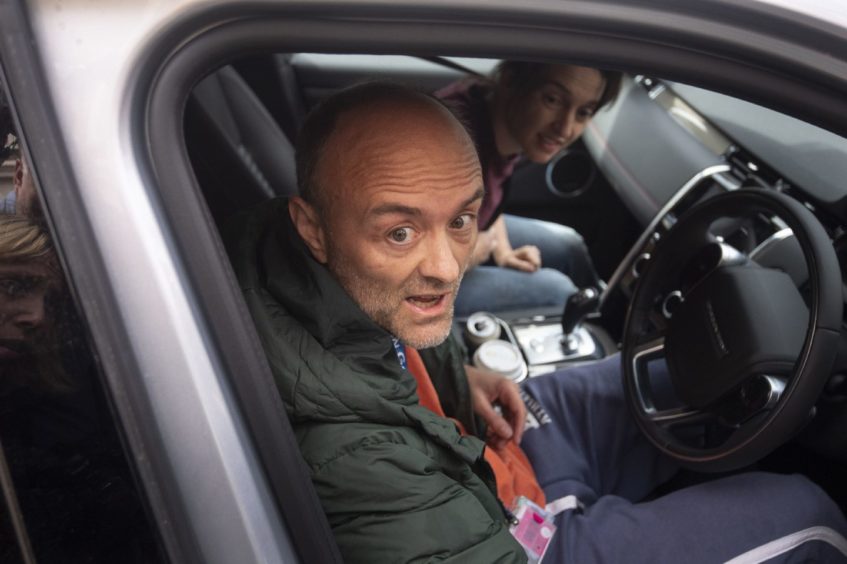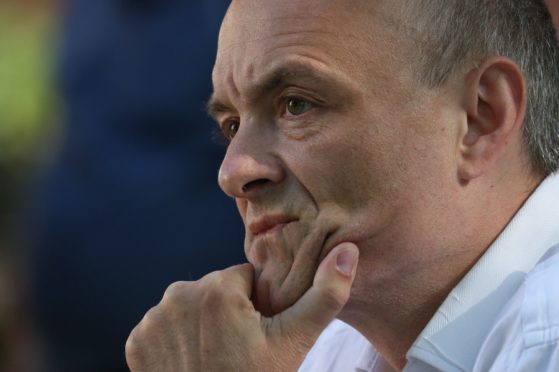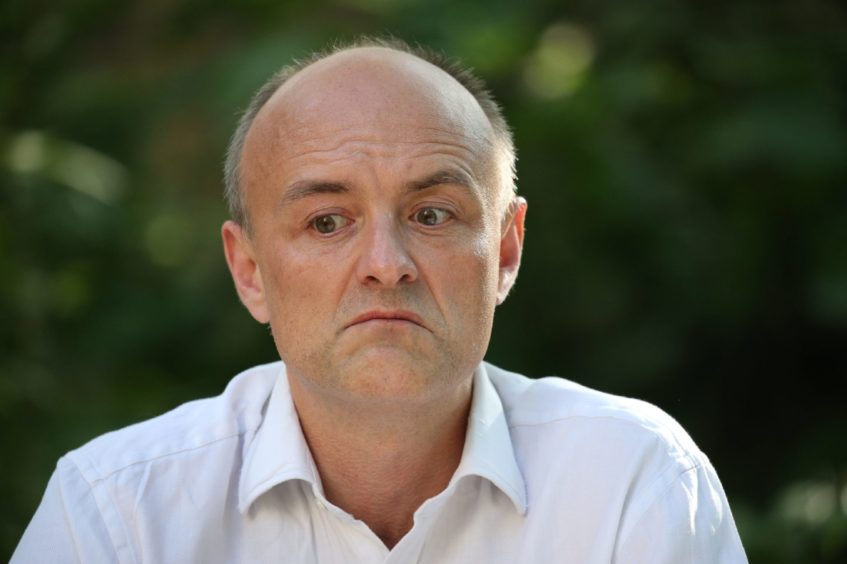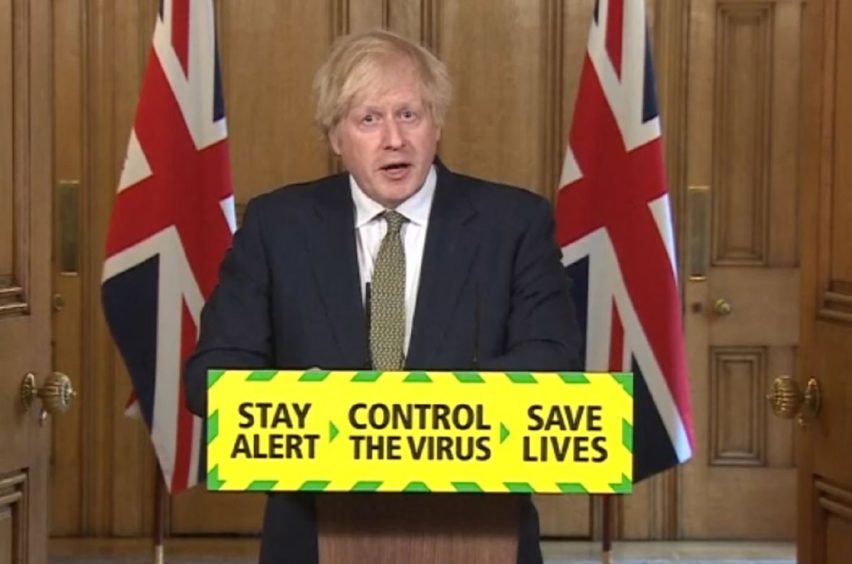Boris Johnson’s chief adviser, Dominic Cummings, has defended his decision to drive 260 miles from London to County Durham during the coronavirus lockdown while he and his family were suffering with Covid-19 symptoms.
Mr Cummings said he believed he was acting “reasonably” and within the law to travel to his parents’ country estate and dismissed accusations that it’s “one rule for him and another for everybody else”.
He said he made the journey north at the end of March with his wife and four-year-old son because of fears over a lack of childcare if he became incapacitated with Covid-19.
“The rules make clear that when dealing with small children that can be exceptional circumstances and I think that was exceptional circumstances,” Mr Cummings said.
Mr Cummings said he had no physical contact with his parents while he was on their estate but they had “shouted conversations at a distance”.

The senior adviser also revealed that his son had needed to go to hospital in Durham while they were staying at a separate property on his parents’ farm.
The child was taken to hospital by ambulance, along with his wife, and stayed overnight, before Mr Cummings left isolation the next day to pick up his wife and child from the hospital. His son later tested negative for coronavirus.
He also confirmed that he made an additional 30-mile trip to Barnard Castle while he was in the North East, claiming he needed to check whether his eyesight was good enough to make the trip back down to London.
While at the tourist hot-spot Mr Cummings and his family got out of their car and sat near a river for some time.
In this very complex situation, I tried to exercise my judgement the best I could.”
Dominic Cummings
In an unprecedented move for a political adviser, Mr Cummings addressed criticism of his actions from the Downing Street rose garden, following an outpouring of anger from the public, MPs, bishops, police, scientists and medics.
Asked why he was not resigning, he said: “There is understandable anger but a lot of that anger is based on reports in the media that have not been true.
“It’s extremely regrettable that the media were told some of these things were wrong and reported them, anyway.”
Mr Cummings said that he tried to exercise his judgement the best he could, and believed he acted reasonably and legally.
He added: “In this very complex situation, I tried to exercise my judgement the best I could.
“I believe that in all the circumstances I behaved reasonably and legally, balancing the safety of my family and the extreme situation in Number 10 and the public interest in effective government to which I could contribute.
“I was involved in decisions affecting millions people and I thought that I should try to help as much as I could do.
“I can understand that some people will argue that I should have stayed at home in London throughout.
“I understand these views, I know the intense hardship and sacrifice the entire country has had to go through. However, I respectfully disagree.”
He said he did not make his movements public because his London home was “already a target”, and he did not want to make his parents’ and sister’s home a target to “harassment” as well.
Mr Cummings said that at “some point” during the first week of his illness, he told Mr Johnson what he had done.
He said they were both so sick that neither of them remember the conversation in any detail.
He added: “I have explained all the above to the Prime Minister.
“At some point during the first week, when we were both sick and in bed, I mentioned to him what I had done.
“Unsurprisingly, given the condition we were in, neither of us remember the conversation in any detail.”
Mr Cummings’s statement came as the UK Government revealed the number of deaths among people who have tested positive for coronavirus – in all settings – has risen by 121 to 36,914.
Following the press conference, SNP Westminster Leader Ian Blackford said Mr Johnson had “no option” but to sack the adviser.
He said: “What should have been a resignation statement turned out to be a botched PR exercise that changes nothing. It is now beyond doubt Dominic Cummings broke multiple lockdown rules.
“There was no apology and no contrition from Mr Cummings for his behaviour – and now, following this unrepentant press conference, there are no excuses left for him.
“He has done nothing but double down on the double standards he has displayed and which millions of people across the UK are furious about.
“Let’s be clear there is nothing about Mr Cummings that is exceptional except his complete inability to realise he broke the rules.”
He added: “The prime minister has no option but to sack Mr Cummings. His failure to do so so far is a gross failure of leadership.”
The message from this government is clear: it’s one rule for Boris Johnson’s closest adviser, another for everybody else.”
Labour spokesman
A Labour spokesman added: “The British people were looking for at least an apology from Dominic Cummings for breaking the lockdown. They got none.
“The message from this government is clear: it’s one rule for Boris Johnson’s closest adviser, another for everybody else.”
Mr Johnson, who took a delayed Downing Street press briefing, said he regretted the “confusion and anger” caused by the row but sidestepped calls to sack Mr Cummings.
“Do I regret what has happened? Yes, of course I do regret the confusion and the anger and the pain that people feel”, he said.
He added: “This is a country that has been going through the most tremendous difficulties and suffering in the course of the last 10 weeks and that’s why I really did want people to understand exactly what had happened.
“I really feel that it would be wrong of me to try to comment further. I think people will have to make their minds up. I think he spoke at great length. To me, he came across as somebody who cared very much about his family and who was doing the best for his family.
“I think, as he said himself, reasonable people may disagree about some of the decisions that he took, but I don’t think reasonable people can disagree about what was going through his head at the time and the motivations for those decisions.”


